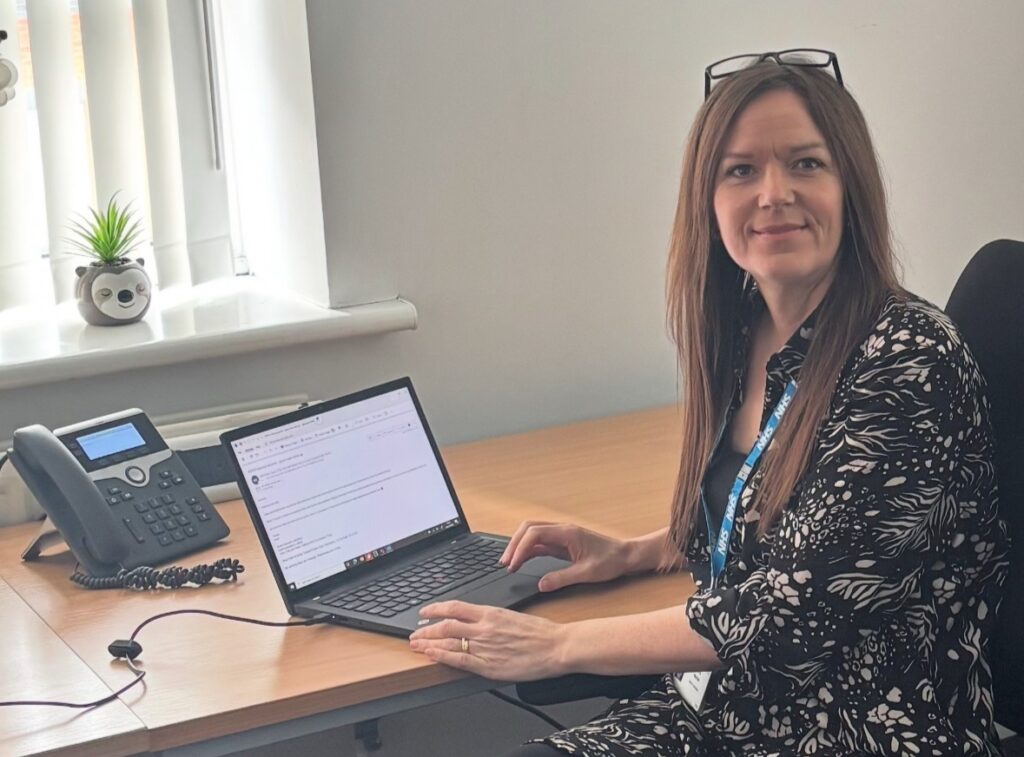Tuesday 24 June 2025
Maria is a Mental Health Nurse Consultant and Independent Non-Medical Prescriber across Community Adult Mental Health Services in Durham.
She describes her passion as: “holistic, patient-centred care and inclusive practice for neurodivergent adults”.
Specialist ADHD training for mental health staff
As part of her role, alongside providing mental health care, Maria delivers adult ADHD education and awareness sessions to staff.
So far, Maria has delivered sessions to over 550 members of staff from Adult Mental Health Services across Durham, Tees Valley and local forensic services and she continues to offer monthly training.
The day-long training sessions provide a high-quality general overview of assessment, diagnosis and treatment of ADHD in adults.
Recognising and understanding ADHD
Maria explains that ADHD frequently co-occurs with other conditions, which can impact diagnosis, treatment and overall wellbeing.
Recognising ADHD early allows for more efficient use of resources and crucially provides a better experience of care for our service users and their families.”
Maria Mazfari
Maria explains that ADHD can greatly impact someone’s life.
She says:
“ADHD can present both strengths and challenges. Having ADHD can bring high energy levels, hyperfocus, creativity, spontaneity and enthusiasm, which, when channelled appropriately, can lead to great success and achievements to be celebrated, providing immense value to society.
“However, ADHD can also cause significant problems in some areas of a person’s day-to-day life and functioning and impact a person’s mental health and wellbeing, which is often what leads people to seek help from support services.”

The National Institute for Health and Care Excellence estimates the global prevalence of ADHD in adults in the UK at 3% – 4%.
Maria hopes that the training will help to expand understanding of ADHD beyond specialist services.
She says: “ADHD is a common condition but people with ADHD may experience limited access to appropriate care, and long wait times before they can access support.”
Improving patient experience for people with ADHD
With attendees describing the sessions as “informative”, “productive” and “engaging”, Maria’s training gives mental health professionals an increased level of knowledge and understanding as well as improving their confidence in supporting adults who have ADHD.
It’s important work that looks to improve the experiences of patients who are accessing our services due to the impact of ADHD on their wellbeing.
Medical secretary, Joanne Carr, says: “Personally, I think Maria needs an MBE for the work she has done and continues to do for our ADHD patients over the years!”
Maria’s mental wellbeing tips for people with ADHD
For people with adult ADHD, Maria mentions some things that a person can consider trying to help themselves:
- Do regular physical exercise – this has many general health benefits and can be a good outlet for energy expenditure.
- Eat a healthy balanced diet with regular mealtimes.
- Have good sleep hygiene.
- Talk to friends and family.
- Make environmental modifications. This could be a quiet workspace or asking for written instructions as well as spoken instructions.
- Access support available to you, such as student support for assistance with planning and structuring.
- Use diaries, calendars, apps, setting alarms and/or visual reminders.
- Practice skills such as CBT, mindfulness and relaxation.
- For some useful tips, visit: ADHD Self Help | Get.gg – Getselfhelp.co.uk